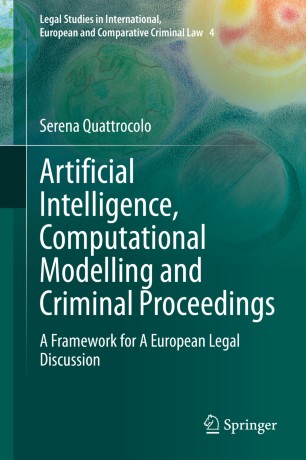

Most ebook files are in PDF format, so you can easily read them using various software such as Foxit Reader or directly on the Google Chrome browser.
Some ebook files are released by publishers in other formats such as .awz, .mobi, .epub, .fb2, etc. You may need to install specific software to read these formats on mobile/PC, such as Calibre.
Please read the tutorial at this link: https://ebookbell.com/faq
We offer FREE conversion to the popular formats you request; however, this may take some time. Therefore, right after payment, please email us, and we will try to provide the service as quickly as possible.
For some exceptional file formats or broken links (if any), please refrain from opening any disputes. Instead, email us first, and we will try to assist within a maximum of 6 hours.
EbookBell Team

4.3
38 reviewsThis book discusses issues relating to the application of AI and computational modelling in criminal proceedings from a European perspective. Part one provides a definition of the topics. Rather than focusing on policing or prevention of crime – largely tackled by recent literature – it explores ways in which AI can affect the investigation and adjudication of crime. There are two main areas of application: the first is evidence gathering, which is addressed in Part two. This section examines how traditional evidentiary law is affected by both new ways of investigation – based on automated processes (often using machine learning) – and new kinds of evidence, automatically generated by AI instruments. Drawing on the comprehensive case law of the European Court of Human Rights, it also presents reflections on the reliability and, ultimately, the admissibility of such evidence. Part three investigates the second application area: judicial decision-making, providing an unbiased review of the meaning, benefits, and possible long-term effects of ‘predictive justice’ in the criminal field. It highlights the prediction of both violent behaviour, or recidivism, and future court decisions, based on precedents. Touching on the foundations of common law and civil law traditions, the book offers insights into the usefulness of ‘prediction’ in criminal proceedings.